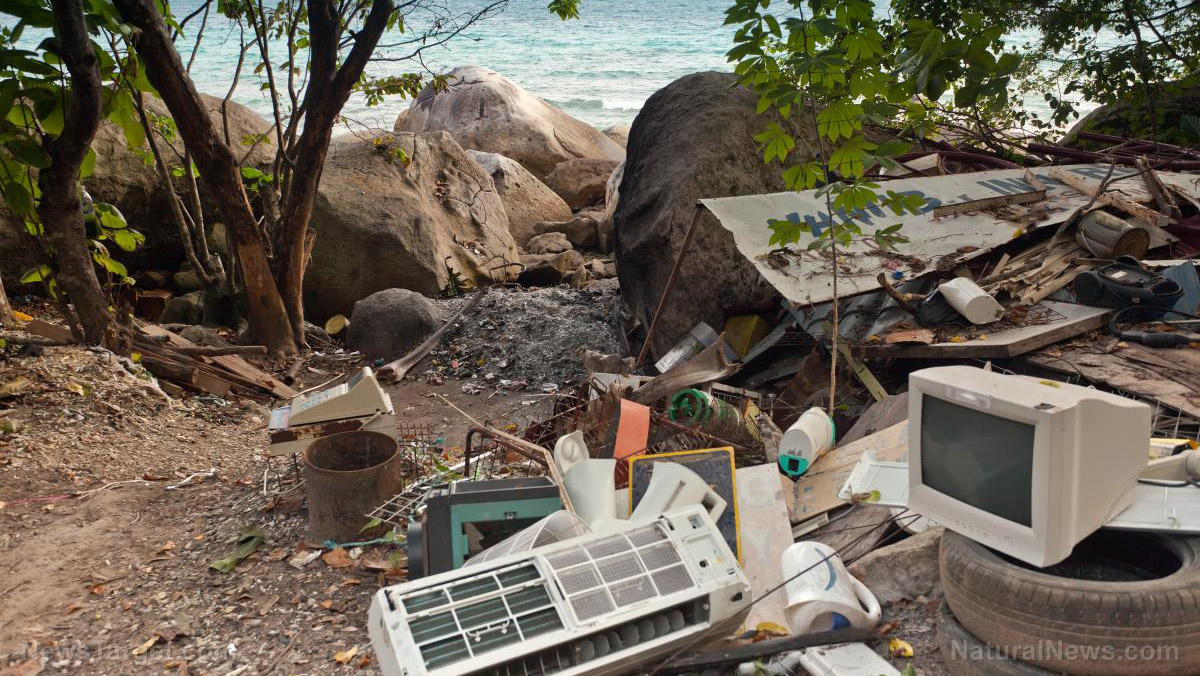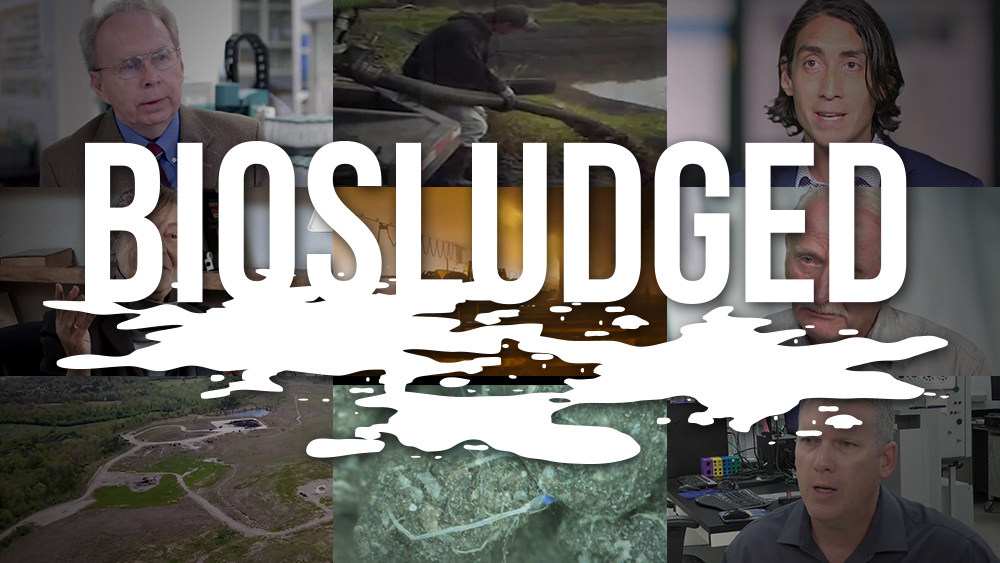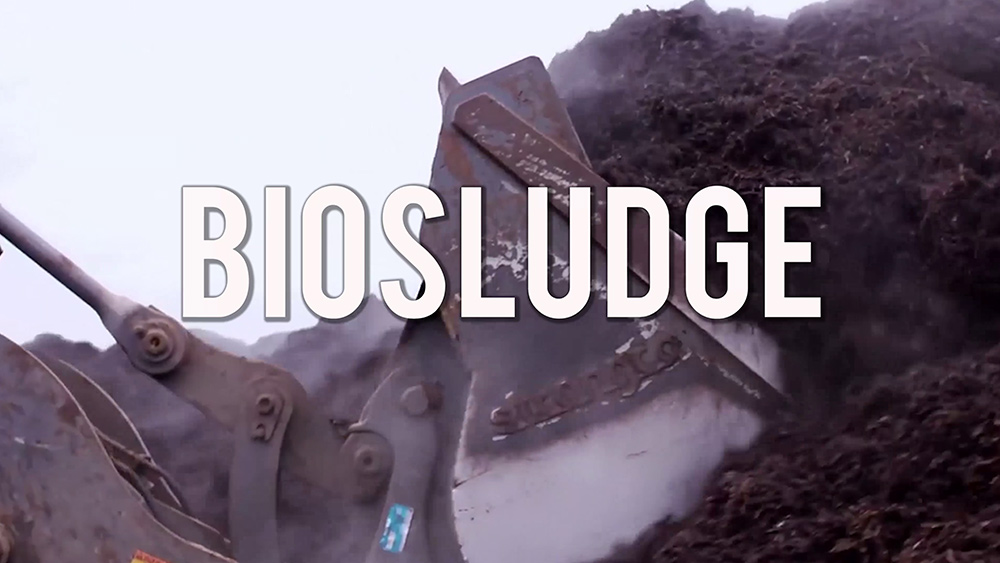RECYCLING old computers is now a crime, thanks to federal prosecutors
02/20/2018 / By Isabelle Z.

Eric Lundgren is known for his innovations in recycling electronics, but now his efforts to keep this growing source of dangerous pollution under control have earned him a 15-month prison sentence and a $50,000 fine.
If Lundgren’s name sounds familiar, it could be because of the headlines he made last year when the $13,000 DIY electric car he made out of recycled parts easily beat a Tesla with its 380-mile range. He also created the country’s first electronic hybrid recycling facility, where discarded cell phones are turned into functional devices – which means their harmful metals and chemicals aren’t ending up in landfills and polluting the environment.
According to the L.A. Times, Lundgren’s company processes 41 million pounds of electronic waste annually and boasts clients like Sprint, IBM and Motorola. His pursuits also include recovering discarded batteries from computers and cars and reusing them in electronics, vehicles and wheelchairs. However, his method of prolonging the life of PCs has landed him in some hot water.
The case involves 28,000 restore discs that Lundgren created and shipped to a partner to restore non-functioning devices. These discs used to come with new computers so that users could reinstall their operating systems in the event that their computer encounters some type of problem, and they can also typically be downloaded for free from a computer’s manufacturer’s website. These discs are often misplaced by the time the computer makes its way to refurbishment, creating extra steps in the refurbishment process.
Lundgren thought that creating these restore discs and selling them to computer refurbishers would encourage secondhand computer sales because the refurbishers wouldn’t need to download the software and then burn the new discs themselves. Because a computer’s new owners are entitled to the software, he didn’t think facilitating this would land him on the wrong side of the law as the discs were intended for computers that already had Windows licenses. After all, Microsoft doesn’t actually sell restore discs; what they sell are the licenses that allow people to use the software. Without authentic license keys, the restore discs can’t install working versions of Windows anyway.
Unfortunately, Microsoft and the government take a different view. Federal prosecutors got a 21-count indictment against him, and Microsoft sought restitution to the tune of $420,000 for lost sales. According to Lundgren, the assistant U.S. attorney working his case said: “Microsoft wants your head on a platter and I’m going to give it to them.”
“Difficult” case
Senior U.S. District Judge Daniel T.K. Hurley did not order him to pay the restitution on the grounds that none of the discs he made were actually sold. An expert witness testified that the value of the reinstallation discs without their product key was “zero or near zero” and that anyone who paid for it was really paying for the convenience. However, he did impose a sentence of 15 months, although that was far less than the 36 to 47 months called for in federal sentencing guidelines.
The judge told Lundgren that his case was “especially difficult because of who you are today and in terms of who you have become.” Lundgren carried out projects to clean up the e-waste found in China and Ghana, and his company also repaired and donated 14,000 cellphones and $100,000 to benefit American soldiers deployed overseas under the Cell Phones for Soldiers program.
Toxic electronic waste hurting the earth and its inhabitants
Many people don’t realize how serious a problem electronic waste is. It contains highly toxic substances, like mercury, arsenic, lead, beryllium and cadmium. Burning electronic trash pollutes the air, and the chemicals also make their way into the water. When the brominated flame retardants old cell phones contain are burned, they create some of the most toxic substances on record. Electronic waste from cell phones, TVs, tablets and other electronics amounts to 50 million tons of electronic waste every year.
However, saving the planet from this serious damage must apparently take a back seat when a corporation might lose a few bucks. Lundgren said: “Anyone successfully extending the life cycle of computers or diverting these computers from landfills for reuse in society is essentially standing in the way of Microsoft’s profits.”
Lundgren is appealing the decision.
Follow more news on pollution vs. recycling at Pollution.news.
Sources for this article include:
Tagged Under: cell phones, corporate greed, E-waste, electronic waste, electronics waste, environment, green living, Microsoft, recycling, refurbished computers, refurbishment, restore discs, stupid, Twisted, windows

















